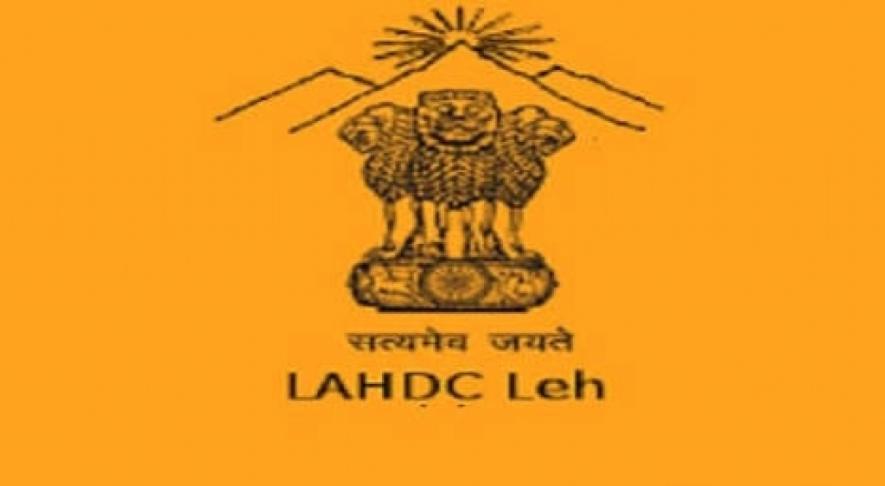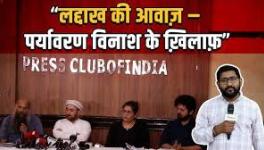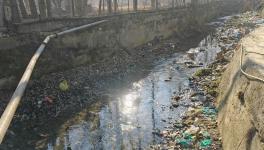Religious Groups, Political Parties to Boycott Ladakh Hill Council Polls, Demand Sixth Schedule for UT

Image Courtesy: Cross Town News
In a major development, several political parties and religious bodies in Leh, including the Bharatiya Janata Party (BJP), have called for an all-out boycott of the elections for Ladakh Autonomous Hill Development Council (LAHDC). This has set the course for an unprecedented upheaval in the region’s politics ahead of the elections scheduled from mid-October.
These political and religious bodies have formed the Apex Body of People’s Movement, which consists of both Muslim and Buddhist organisations demanding an extension of the Sixth Schedule of the Constitution, which grants autonomy to tribal communities, to the Union Territory of Ladakh.
“The Apex body of People’s Movement for Sixth Schedule for Ladakh unanimously resolved to boycott the ensuing 6th LAHDC Leh elections till such time the constitutional safeguard under Sixth Schedule on the lines of Bodo territorial council is not extended to UT Ladakh and its people,” a statement from the body said.
This is for the first time that a unanimous move to boycott elections, to be held on October 16, has been taken by the social and political leaders in Leh. The decision comes at a time when Ladakh, especially its eastern region, is witnessing turbulence on the Line of Actual Control (LAC) due to the border dispute with China’s People’s Liberation Army (PLA). In one of the incidents in Galwan Valley, 20 Indian soldiers were killed in June, triggering a new wave of conflict in the territory.
As many as 12 organisational heads including PT Kunzang (president, Ladakh Buddhist Association), Dr Abdul Qayum (president, Anjuman Moin ul Islam) and Rev. Dechen Chamgha (Christain Community) have signed the boycott declaration. Its signatories also include Nawang Samstan, the district president of BJP, and T Phuntsog, the convener of Aam Aadmi Party (AAP) in the region.
The demand to be designated as a separate Union Territory by Ladakhis predates the August 5 decision last year when New Delhi unilaterally abrogated Article 370 and Article 35 A in the region and divided Jammu and Kashmir into two UTs including Ladakh, a predominantly tribal belt. Back then, the decision was hailed by the BJP as a forerunner to a new era of development and empowerment of Ladakhis. Many locals in Leh had welcomed the decision even as part of the new UT in Kargil observed a strike against in protest.
A year later, with the call for boycott of the election, people in Leh seem to be following the footsteps of Kashmir, with similar fears over demographic change and the loss of social and political opportunities in the aftermath of last year’s decision.
Former chief executive councilor of Leh, Rigzin Spalbar told NewsClick that there are many concerns among the people of Ladakh regarding constitutional safeguards to protect their identity, land, demography and natural environment.
“We are asking nothing which is out of our Constitution. People are very worried that they will be exploited by the non-tribals. People see this as an attempt to change the demography of the UT,” he said.
The change in Ladakh’s status in August last year also resulted in the dis-empowerment of the LAHDC, which has since become subservient to multi-tier bureaucracy. There are also apprehensions that a “free-hand” to multinational corporations to operate in the region will lead to exploitation of locals and their resources.
“We are currently in a set up where the aspirations of the people are not met at all because the council does not have legislative powers over land and environmental issues. They had been made to work like a middleman with no powers. Taking part in elections doesn’t make sense at all if we don’t get safeguards in the form of Sixth Schedule," Spalbar said.
The demand for the UT gained momentum in 1989 as the armed insurgency began in Kashmir. Six years later, in 1995, before the historical elections of 1996 were held in the valley (which brought the political mainstream back in the strife-torn territory), the Hill council in Leh was created under the LAHDC Act. A separate hill council was assigned to Kargil, which is now part of the Ladakh UT.
“From the first day, Kargil has opposed the bifurcation and have communicated the same to Leh, but unfortunately, they didn’t understand it then. We have full sympathy with the people of Leh,” Kargil’s prominent social activist Sajjad Kargili told NewsClick.
Sajjad, however, said that Kargil’s issue is not about the Sixth Schedule. “Kargil has never accepted Ladakh as UT. We have been pushed into it. Our issue is unconstitutional bifurcation of our state and the abrogation of our special status. We want to be a part of Jammu and Kashmir and our struggle is about that,” he said.
The signatories of the People’s Movement have also expressed their plan to visit Kargil to discuss the issue with the leaders there, and many say, both sides are likely to join hands over the issue.
“We are open to discussion. But our demand remains the same: restoration of statehood and special status,” Sajjad added.
Get the latest reports & analysis with people's perspective on Protests, movements & deep analytical videos, discussions of the current affairs in your Telegram app. Subscribe to NewsClick's Telegram channel & get Real-Time updates on stories, as they get published on our website.
























